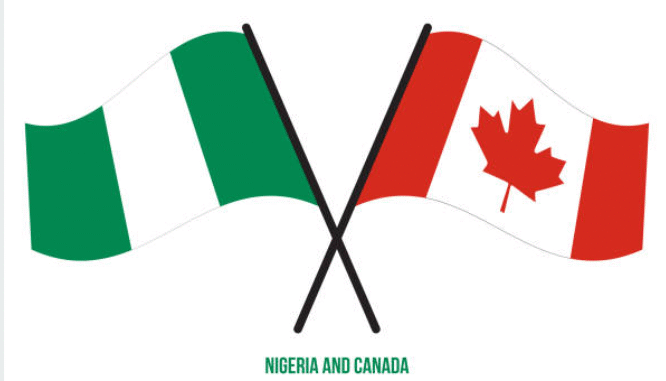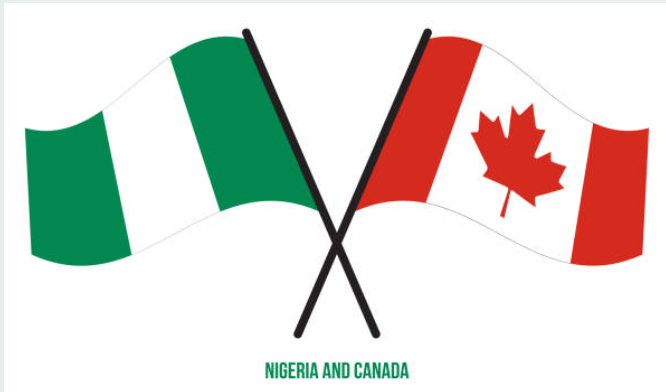
How to Relocate from Nigeria to Canada in 2025 (Step-by-Step Guide)
Are you planning to leave Nigeria for Canada in 2025? Then you landed on the right blog page as we are going to discuss everything about how to relocate from Nigeria to Canada in 2025: a step by step guide here.
Thousands of Nigerians dream of relocating to Canada in search of better jobs, education, or simply a better life. The good news is that Canada still welcomes skilled immigrants, international students, and even business owners. But the process isn’t automatic as you will need the right steps, documents, and strategy.
Without further ado, let’s get into business as we dish out every information you will need concerning how to relocate from Nigeria to Canada in 2025.
Why Canada?
The following are some of the reasons a lot of Nigerians are relocating to Canada.
- Quality Education: Canada has some of the world’s top universities, and international students can work and stay after graduation.
- Job Opportunities: With a shortage of skilled labour, Canada is recruiting foreign workers in health, tech, engineering, and trades.
- Safety and Stability: Canada offers a peaceful, clean, and secure environment with better healthcare and social services.
- Pathway to Citizenship: You can become a permanent resident and even a Canadian citizen within a few years.
Main Pathways to Relocate to Canada from Nigeria
There are several legal ways to move from Nigeria to Canada, but these are the most common and realistic ones:
1. Express Entry (Federal Skilled Worker Program)
This is the fastest and most popular route for skilled Nigerians. You must:
- Be under 45 years old
- Have a good education (BSc or higher)
- Have skilled work experience (at least 1 year)
- Score high in IELTS (at least 6.0 in each band)
- Have proof of funds (₦6 million and above depending on family size)
Steps:
- Write IELTS exam and get your ECA (Education Credential Assessment)
- Create a profile on the IRCC website here
- Wait for an Invitation to Apply (ITA)
- Submit documents and undergo medicals, police check, and biometrics
- Get PR visa within 6–12 months (if successful)
Pro tip: Aim for a CRS score of 470+ to stand a good chance in 2025.
A CRS score, or Comprehensive Ranking System score, is a points-based system used to evaluate and rank candidates in Canada’s Express Entry pool for immigration. The score is calculated based on factors such as:
Age: Maximum 110 points, with younger applicants receiving more points
Education: Maximum 150 points, with higher levels of education receiving more points
Language Proficiency: Maximum 136 points for English or French, with higher scores in language tests receiving more points
Canadian Work Experience: Maximum 70 points, with more years of experience receiving more points
Spouse or Common-Law Partner Factors: Maximum 40 points, considering education, language proficiency, and Canadian work experience
Skill Transferability: Maximum 100 points, evaluating combination of education, language proficiency, and work experience
Additional Points: Up to 600 points for provincial nomination, 200 points for arranged employment (until Spring 2025), and 15 points for having a sibling in Canada
The CRS score ranges from 0 to 1200, and candidates with higher scores are more likely to receive an Invitation to Apply (ITA) for permanent residence in Canada.
2. Study Visa
Canada is now more open to international students than ever before. If you have the funds or a scholarship, this is a great route.
Requirements:
- Admission letter from a Designated Learning Institution (DLI)
- Proof of funds: at least CAD $20,000 (~₦24 million) for tuition and living expenses
- IELTS or TOEFL scores
- Statement of Purpose (SOP)
- Strong ties to Nigeria (to show you’ll return)
Benefits:
- You can work part-time while studying
- Your spouse can join you and work full-time
- You can apply for Post Graduate Work Permit (PGWP) after graduation
- Later, you can apply for PR via the Canadian Experience Class (CEC)
Pro tip: Apply early and avoid agents that promise fake admission.
3. Provincial Nominee Programs (PNPs)
Each Canadian province has its own immigration program. If you have work experience that a province needs (e.g., health care, agriculture, tech), you can apply through a PNP.
Popular provinces:
- Saskatchewan
- Alberta
- Nova Scotia
- British Columbia
- Manitoba
Requirements vary by province but typically include:
- IELTS score
- ECA
- Relevant job experience
- Sometimes a job offer
You can apply through Express Entry-linked PNPs or directly through the province’s website.
4. Family or Spousal Sponsorship
If you have a spouse, parent, child, or relative who is a Canadian citizen or permanent resident, they can sponsor you.
What they must prove:
- They can financially support you
- They are not receiving social assistance
- The relationship is genuine
This is one of the fastest ways to relocate, and the success rate is high.
5. Work Permit (Temporary Foreign Worker Program)
Getting a job offer from a Canadian employer is not easy but it’s possible if you have specialized skills (e.g., truck driving, nursing, welding, software development), you can be hired and sponsored.
Steps:
- Apply for jobs on Canadian job sites (e.g., Job Bank, Indeed.ca, LinkedIn)
- The employer applies for LMIA (Labour Market Impact Assessment)
- If approved, you apply for a work visa at the Canadian visa office in Nigeria
Downside: No permanent residency unless you later apply through Express Entry or PNP.
General Documents You’ll Need
Regardless of the pathway, certain documents are almost always required:
- International Passport (valid for at least 6 months)
- Academic certificates (WAEC, BSc, MSc, etc.)
- IELTS or TOEFL result
- Statement of purpose (SOP or Letter of Intent)
- Proof of funds (bank statements, property documents)
- Police clearance certificate
- Medical examination report (from an approved panel clinic)
- Biometrics (fingerprints and photo at VFS)
How Much Does It Cost to Relocate to Canada from Nigeria?
Here’s a rough breakdown for a single applicant:
| Expense | Estimated Cost in Naira (₦) |
|---|---|
| IELTS exam | ₦170,000 – ₦200,000 |
| ECA (WES/ICAS) | ₦120,000 – ₦150,000 |
| Express Entry application | ₦500,000+ |
| Proof of funds (for PR) | ₦6–10 million+ |
| Tuition (if studying) | ₦8–20 million/year |
| Visa processing + biometrics | ₦150,000 – ₦200,000 |
| Flight ticket | ₦800,000 – ₦1.5 million |
Note: Always check current exchange rates and official IRCC fees.
Where to Apply for Canadian Visa in Nigeria
All applications are now done online via the IRCC official website. For biometrics and passport submission, you’ll use VFS Global Canada offices in:
- Abuja: 3rd Floor, Murkhtar El-Yakub Place, CBD
- Lagos: 16 Billings Way, Oregun, Ikeja.
How Long Does It Take?
Here is a breakdown of how long most pathways to Canada from Nigeria takes.
- Express Entry: 6 to 12 months
- Study visa: 6–12 weeks
- Spousal sponsorship: 8–12 months
- Work visa: Depends on LMIA and processing (3–9 months)
Tips to Avoid Rejection
Many Nigerians get denied due to:
- Poor documentation
- Insufficient funds
- Weak SOP
- Fake documents
- Lack of ties to Nigeria
To improve your chances:
- Be honest and clear in your application
- Double-check your documents
- Use a licensed immigration lawyer, attorney or consultant if necessary (Regulated Canadian Immigration Consultant – RCIC)
Conclusion
Canada remains one of those countries that most immigrants wishes to relocate to asides the UK and USA. This blog covered most of the information you need to navigate you way through Canada from Nigeria. Should you have any other questions to ask, don’t hesitate to drop it in the comments section.

FAQs On How To Relocate To Canada From Nigeria
The following are some of the questions and answers about how to relocate to Canada from Nigeria.
Can I relocate to Canada without IELTS?
Not really. Most immigration streams require proof of English proficiency, except for sponsorship or native English speakers who can prove that they completed their formal education in English.
Which province is easiest to migrate to?
Provinces like Saskatchewan and Nova Scotia are more open to foreign workers and may have lower CRS score requirements.
Can I move to Canada with my family?
Yes. You can include your spouse and children in most visa applications.
Canada still accepting immigrants in 2025?
Yes, Canada’s 2025–2027 Immigration Plan targets over 485,000 newcomers annually.
Leave a Reply